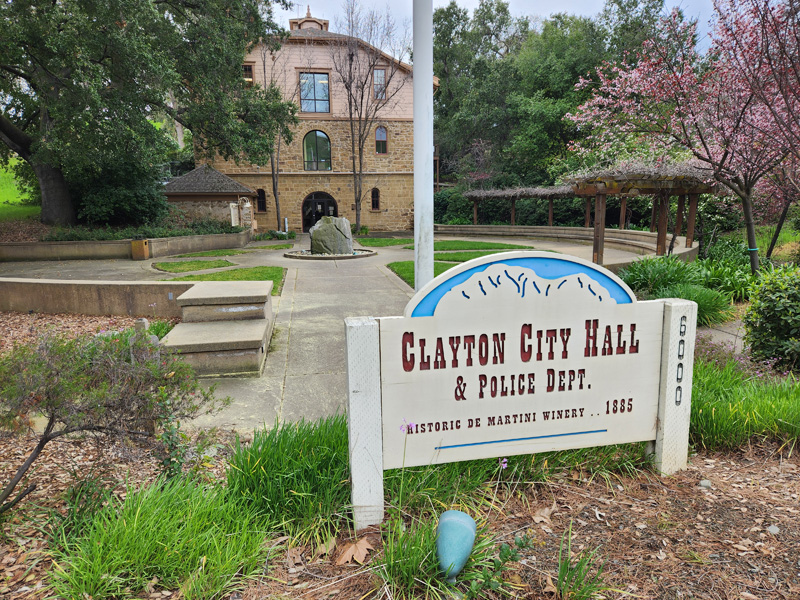Clayton City Council tightens meeting rules

CLAYTON, CA (Jan. 17, 2025) — In a decision that critics say centralizes power and reduces public participation, and despite overwhelming opposition from citizens present, the Clayton City Council adopted significant changes to its meeting protocols at the regular Jan. 7 meeting. Led by Mayor Kim Trupiano and Vice Mayor Jeff Wan, the changes are framed as efficiency measures but have sparked considerable pushback from council members and residents alike.
Mayor gains sole control of agenda
In a 4-1 vote with Trupiano, Wan and Council members Jim Diaz and Rich Enea voting yes and Council member Holly Tillman opposing, the most controversial change grants the mayor full authority over setting the agenda. Prior to the change, a council member could request agenda items during the public meeting, ensuring a degree of transparency and accountability. The mayor, vice-mayor and city manager would later discuss proposed items, and the mayor would then decide on “which” future agenda the item would appear. Council members are now required to submit requests in writing to both the mayor and city manager, with the mayor having sole discretion “whether” to agendize them or not. In a puzzling comment, Wan said the change was simply to “clean up the language,” arguing that “which” and “whether” mean the same thing.
The timing of this shift has raised eyebrows. Councilmember Holly Tillman has requested an independent investigation into the city’s senior management turnover at every meeting since October 2023 and has been repeatedly ignored. The city has seen no fewer than two dozen changes at the senior level since 2018, including nine permanent, acting and interim city managers. Tillman worries the new procedure will further silence efforts to tackle critical issues.
“This isn’t about efficiency; it’s about removing checks and balances,” said Tillman. “Important matters, like investigating our management crisis, are now easier to ignore.”
Trupiano invited Tillman to discuss her concerns in private and assured those present, “You’ll just have to believe the city manager and I will make the right decision.”
Hybrid meetings discontinued
The council also voted to end hybrid meetings, which allowed citizens to attend and comment via Zoom—a practice started during the COVID-19 pandemic to encourage greater civic engagement. While meetings will continue to be livestreamed, remote participants will no longer be able to offer live public comments.
“We’re simply taking a step back to pre-pandemic,” Trupiano explained, prompting sharp criticism.
“Why would we disregard four years of technological advancements that increased public participation?” asked a resident during the meeting. “This isn’t a step back; it’s a setback for transparency and democracy.”
The council admitted there were no financial savings associated with ending hybrid comments, fueling concerns that the decision was motivated by a desire to curtail public input rather than operational necessity.
Council also eliminated verbal committee and council reports, which offered insight into council activities and discussions. Critics argue this limits the flow of information between council members and the public, making it harder for residents to stay informed about governance and council priorities.
Streamlining or power grab
Residents voiced strong opposition to the changes, viewing them as a step away from participatory democracy.
Critics have also flagged the potential for violations of the Brown Act, which prohibits non-public discussions of agenda items among a quorum of council members. With agenda requests handled privately between the mayor, city manager, and the requesting councilmember, there’s concern this new process could unintentionally breach legal requirements for transparency.
As Clayton adjusts to these new procedures, community members are left questioning whether efficiency has come at too high a cost.
View the full meeting video at claytonca.gov.
